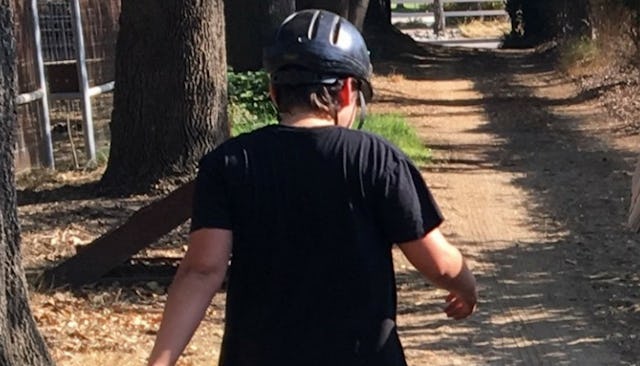What Happened After My Child's Mental Health Diagnosis

“How are you doing?” the psychologist asked, after his session with my son.
I am asked this a lot lately since my son’s mental health diagnoses, by sweet friends, by my family, by my husband, and by many of you. I am grateful that I am asked. But I am never really sure how to respond.
The last few weeks (really months) have been a haze of symptoms and meltdowns, medications that work and medications that don’t, doctor after doctor, therapist after therapist, all leading up to a comprehensive neuropsychiatric evaluation at one of the top children’s hospitals in the nation.
After days of testing, take-home questionnaires, family history forms, and extensive interviews, we were given a list of all the disorders my 10-year-old son meets the DSM-V diagnostic criteria for. They confirmed his generalized anxiety disorder diagnosis. They confirmed what we have suspected for a while and diagnosed him with ADHD. And they diagnosed him with a mood disorder.
I walked out of the hospital, my son holding my hand and anxious in all the downtown traffic, and the world felt different somehow — unfamiliar, scary.
I came home to the same mess we’d left in the kitchen that morning. My oldest son was excited to tell me what he’d learned about flightless fruit flies as feeders for frogs. My husband needed to get some work done after taking so much time off.
I have said it before, and I will say it again: The truth is, your child receives a mental health diagnosis, and then you go home. Absolutely nothing changes. Except your heart — your heart is never the same.
Shawna Wingert
You come home and the meltdowns continue, the sleeplessness is a constant, and your child is still in pain. It takes time for treatment to begin, and even longer for treatment to help.
With my oldest son, it was months before we really felt like he was experiencing some relief. I remind myself of this, as often as I can. It just takes time.
The most difficult part of this no man’s land between diagnosis and therapeutic progress is seeing my sweet boy suffer and knowing there is nothing I can do to make it stop. As a mother, doing nothing feels wrong — flat wrong. Doing nothing requires more courage and faith than I think I am capable of right now.
There are only a few things that I think can help, in the midst of this season of waiting:
Relax in every way.
The schedule, the schooling, the meal planning, the cleaning, the obligations outside our home. The expectations for our entire family must be adjusted in this season. We are officially in survival mode.
Be intentional about time with your other child(ren).
Fortunately, my oldest son is doing really well right now. It’s tempting to allow him to just be the easy child for a bit, while the bulk of my energy is focused on my newly diagnosed son. It would be easy, but I don’t think it would be wise.
He needs me more than ever, as he struggles to understand why his brother isn’t himself anymore. He needs me more than ever to reassure him, as he sees my tears and frustration. He needs me to be present as his momma, and to show him that he is always a priority, even if it looks a little different for a while.
And lastly, but probably most importantly…
Pray a lot.
All the time. The honest, ugly prayers. The prayers for protection, for healing, for salvation. The prayers for patience, for sleep, for help. The “Help me, God” prayers and the “Please God, please help my boy” prayers. The “Why him?” and the “Why me?” and the “Why us?” prayers. The prayers without words, just tears.
I need to pray them all, because this is the only way I know to find peace in the storm. The more I pray, the more I am reminded that God is in our midst. He always has been, and He promises He always will be. I am reminded that my son is His first. I am comforted, as I once again settle into the reality that my son is fearfully and wonderfully made. A diagnosis doesn’t change this truth.
And the more time goes on, the more I catch glimpses of how my son’s unique brain, although a mystery right now, is beautiful. The artistic, empathetic, sweet, energetic, fun, and loving boy is still here, not despite his diagnoses, but in some instances because of them.
Shawna Wingert
I will not pick and choose what I love about my sweet son. I love him, all of him, just as he is.
And that is my answer to the question “How are you doing?”
I am loving him with everything I’ve got.
[free_ebook]